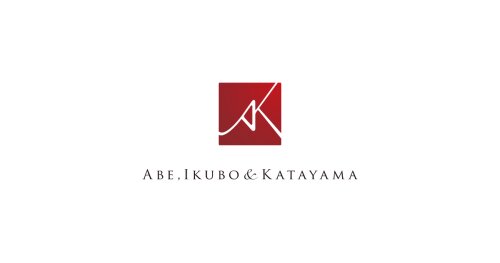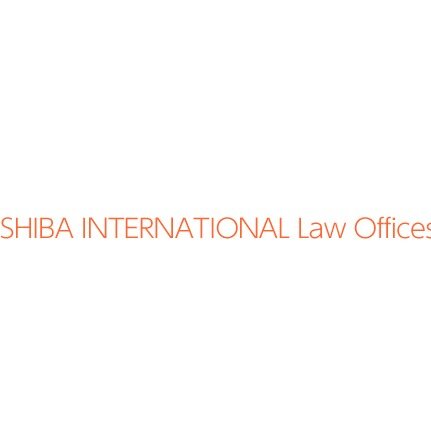Best Debt Capital Markets Lawyers in Tokyo
Share your needs with us, get contacted by law firms.
Free. Takes 2 min.
List of the best lawyers in Tokyo, Japan
About Debt Capital Markets Law in Tokyo, Japan
Debt Capital Markets (DCM) refer to the financial markets where companies, governments, and other organizations raise funds by issuing debt instruments such as bonds, notes, and other fixed-income securities. In Tokyo, Japan's largest and most prominent financial hub, the DCM is highly sophisticated and regulated, offering opportunities for both domestic and international issuers and investors. The issuance, trading, and settlement of these debt securities in Tokyo are subject to a complex framework of financial regulations, designed to protect investors and ensure the smooth functioning of the market.
Why You May Need a Lawyer
Navigating the Debt Capital Markets in Tokyo can be challenging due to strict regulations, language barriers, and complex financial products. Common situations where hiring a lawyer is vital include:
- Structuring and executing bond issuances
- Understanding and ensuring compliance with the Financial Instruments and Exchange Act (FIEA)
- Conducting cross-border transactions and advising on international regulatory requirements
- Drafting, reviewing, and negotiating offering documents and agreements
- Managing regulatory filings with the Japan Financial Services Agency (FSA) and the Tokyo Stock Exchange (TSE)
- Handling disputes or investigations related to disclosure, trading, or securities fraud
- Advising on taxation aspects of debt securities
A qualified lawyer with DCM experience can help you minimize risks, ensure regulatory compliance, and protect your interests in these highly specialized transactions.
Local Laws Overview
Several key laws and regulations are central to Debt Capital Markets in Tokyo:
- Financial Instruments and Exchange Act (FIEA): This is the primary statute governing the issuance and trading of securities, including debt instruments. FIEA imposes disclosure requirements, offers investor protection, and regulates market participants.
- Regulations by the Japan Financial Services Agency (FSA): The FSA supervises securities markets and imposes rules on licensing, reporting, and compliance for all market participants.
- Tokyo Stock Exchange (TSE) Listing Rules: If you plan to list bonds or notes on the TSE, specific listing requirements and ongoing obligations must be fulfilled.
- Tax Laws: Japan’s tax code covers withholding taxes on interest and other income generated by debt securities.
- Cross-Border Regulations: For international or foreign issuers, special rules regarding foreign investment control, currency exchange, and international disclosure may apply.
Understanding and properly applying these rules are essential for both issuers and investors to successfully operate in Tokyo’s DCM environment.
Frequently Asked Questions
What is the typical process for issuing bonds in Tokyo?
The process usually involves preparing offering documents, securing regulatory approvals, filing mandatory disclosures with the FSA, and coordinating the issuance with market intermediaries and exchanges such as the TSE.
Can foreign companies issue bonds in Tokyo?
Yes, foreign companies regularly issue bonds in Tokyo’s DCM, but they must comply with Japanese regulatory requirements, disclosure standards, and potentially additional rules for cross-border transactions.
What are the main risks associated with investing in debt securities in Japan?
Risks include credit risk, interest rate risk, foreign currency risk (for non-yen denominated bonds), and potential regulatory or market changes. Ensuring proper disclosure is crucial.
What disclosures are required under Japanese law for debt offerings?
The FIEA requires issuers to provide a securities registration statement, prospectuses, and ongoing disclosures to keep investors informed of relevant changes during the life of the security.
Are there restrictions on who can invest in the Japanese Debt Capital Markets?
Generally, both institutional and retail investors can participate, but some products may be limited to professional investors by law or prospectus limitations.
How are debt securities taxed in Japan?
Interest earned from debt securities is generally subject to withholding tax, although exemptions or reduced rates may apply under tax treaties or certain qualified programs.
What is the role of the Japan Financial Services Agency (FSA)?
The FSA is the main regulatory and supervisory authority for financial markets in Japan, overseeing market integrity, investor protection, and compliance by market participants.
What happens in case of a default by a bond issuer?
Bondholders may seek legal remedies such as enforcing security interests or pursuing claims through court proceedings or restructuring processes, depending on the terms and governing law of the instrument.
Are green bonds or other ESG debt instruments active in Tokyo?
Yes, there is significant and growing interest in green bonds and ESG (Environmental, Social, Governance) linked debt offerings, with the Japanese government and exchanges promoting such products.
Do I need a Japanese lawyer, or can foreign lawyers assist?
While foreign legal advisors may help with cross-border aspects, local Japanese law issues generally require the expertise of a licensed Japanese lawyer, especially on regulatory filings and disputes.
Additional Resources
- Japan Financial Services Agency (FSA)
- Tokyo Stock Exchange (TSE)
- Japan Securities Dealers Association (JSDA)
- Ministry of Finance Japan
- Association of Credit Rating Agencies in Asia
- Major international law firms with Tokyo offices specializing in capital markets
These organizations provide regulatory guidance, industry news, and guidelines for issuers and investors.
Next Steps
If you are considering participating in or are facing issues related to the Debt Capital Markets in Tokyo, consider the following actions:
- Identify your specific needs, such as debt issuance, investment, or dispute resolution
- Compile all relevant documents and questions about your intended transaction or concern
- Contact a qualified law firm or legal specialist in Tokyo with expertise in Debt Capital Markets
- Arrange an initial consultation to discuss your objectives and legal options
- Stay informed on industry developments and regulatory changes affecting DCM in Japan
Engaging a knowledgeable lawyer early in the process can help you avoid costly mistakes and ensure you meet all legal and regulatory requirements in Tokyo’s Debt Capital Markets.
Lawzana helps you find the best lawyers and law firms in Tokyo through a curated and pre-screened list of qualified legal professionals. Our platform offers rankings and detailed profiles of attorneys and law firms, allowing you to compare based on practice areas, including Debt Capital Markets, experience, and client feedback.
Each profile includes a description of the firm's areas of practice, client reviews, team members and partners, year of establishment, spoken languages, office locations, contact information, social media presence, and any published articles or resources. Most firms on our platform speak English and are experienced in both local and international legal matters.
Get a quote from top-rated law firms in Tokyo, Japan — quickly, securely, and without unnecessary hassle.
Disclaimer:
The information provided on this page is for general informational purposes only and does not constitute legal advice. While we strive to ensure the accuracy and relevance of the content, legal information may change over time, and interpretations of the law can vary. You should always consult with a qualified legal professional for advice specific to your situation.
We disclaim all liability for actions taken or not taken based on the content of this page. If you believe any information is incorrect or outdated, please contact us, and we will review and update it where appropriate.
















